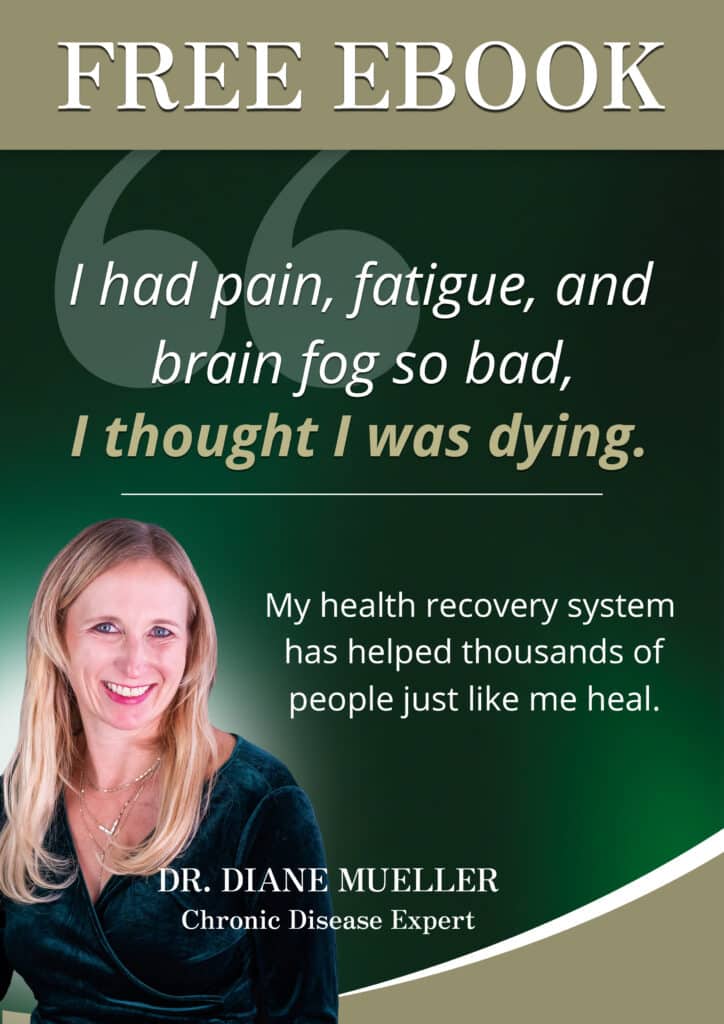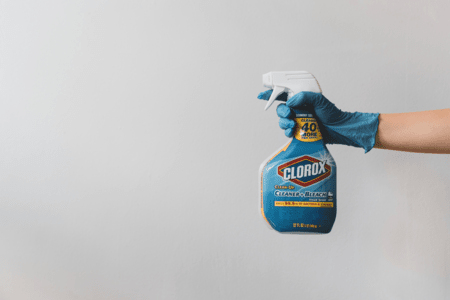

Written by Dr. Diane Mueller Here, I’m diving into what many homeowners and health-conscious individuals ask: “Will bleach kill black mold?” While the answer may seem straightforward, it’s more nuanced than you may think. This isn’t just about the aesthetic component of mold in your home; it’s about the long-term health implications of mold exposure.
We have helped thousands of people restore their health and quality of life by diagnosing and treating their Mold Illness
Yes, bleach can kill mold. But here’s the catch: it can also cause mold spores to spread. Organisms in nature have one primary goal—to survive. When threatened, they often resort to last-ditch efforts for survival. Mold is no different. When you pour bleach on mold, its last-ditch effort is to disperse its spores, potentially exacerbating the problem.
At first glance, applying bleach to a moldy area will make it look better. The visible mold will disappear, giving you the impression that you’ve solved the problem. However, this is a temporary fix. The spores may have spread to other areas, like your HVAC system or behind the drywall. On a humid day, these spores can multiply, leading to more significant issues, some of which may not be visible.
Mold exposure has been linked to various health issues, including brain fog, cognitive decline, fibromyalgia, chronic fatigue, early menopause, and more1. If mold spores end up in hidden areas, the problem can go unchecked and unnoticed for years, sometimes even decades.
If you’re dealing with a non-toxic mold, as determined by testing the spores, using bleach may not be a big deal. However, if you’re facing a problematic mold type, bleach can make the situation worse. I understand that you might be looking for a quick DIY solution, but taking shortcuts can lead to long-term health problems. It’s crucial to test the mold and, if necessary, work with professional remediators to address the issue properly.
Vinegar: The Natural Mold-Killer
Just like bleach, vinegar can kill mold but also has the potential to spread spores. However, vinegar is less harsh and may be a suitable alternative for less severe mold issues.
Tea Tree Oil: A Potent Fungicide
Tea tree oil has been shown to be an effective fungicide and can kill mold spores without the risk of them spreading.
Baking Soda: Gentle Yet Effective
Baking soda is another natural alternative that can kill mold without causing spore dispersion. It’s also safe to use around pets and children.
Now you know the answer to “will bleach kill black mold”. While bleach can kill mold, it’s not always the best solution due to the risk of spreading mold spores. Given the health risks associated with mold exposure, it’s crucial to approach mold remediation carefully. Natural alternatives like vinegar, tea tree oil, and baking soda can be effective, but it’s essential to test the mold type before taking any action.
I hope you found this information helpful. If you’re dealing with health-related mold conditions like brain fog, chronic fatigue, hormone imbalance, or migraines, feel free to book a free call with us. The details can be found in the show notes. Don’t forget to subscribe for more insightful content!
We have helped thousands of
people restore their health
and quality of life by diagnosing
and treating their Lyme Disease.
“Dr. Mueller’s approach to medicine is refreshing! There is only so much you can do with western medicine and in my life I was needing a new approach. By addressing the whole body, nutritional diet factors, environmental factors, blood work, and incorporating ideas I had not previously known, I was able to break through with my conditions. I am not only experiencing less pain in my life, but through the process of healing guided by Dr. Diane Mueller, I am now happy to say I have more consciousness surrounding how I eat, what to eat and when things are appropriate. Living by example Dr. Mueller has a vibrancy that makes you want to learn and know more about your body and overall health. I highly recommend her to anyone looking for new answers, a new approach to health, or in need of freedom from pain and limitations.”
-Storie S.
Kihei, HI
